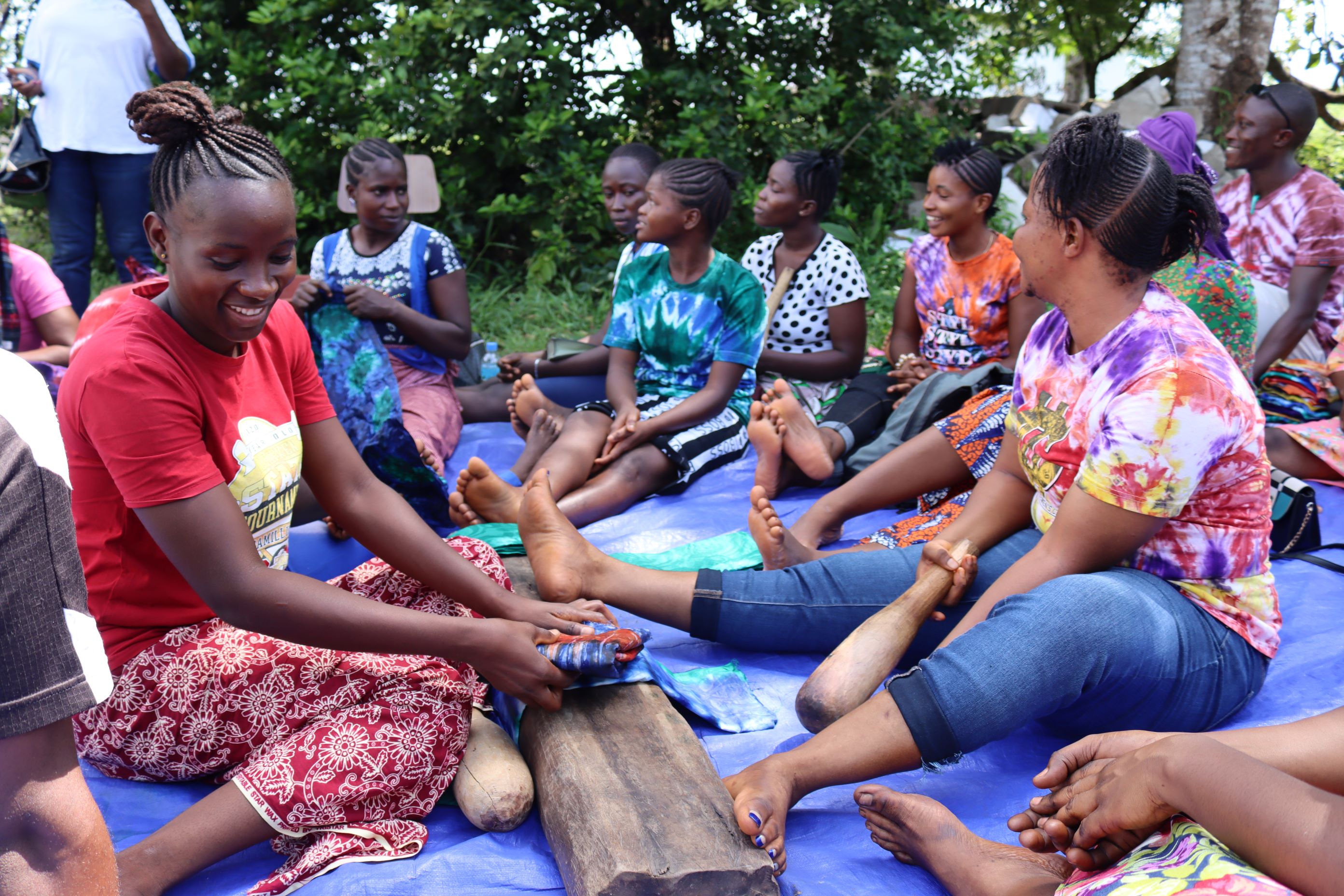UNDP trains senior government officials on gender-responsive planning and budgeting in Sierra Leone
January 23, 2024

Women beneficiaries of a UNDP training programme
In a concerted effort to advance gender equality and empower decision-makers, UNDP recently conducted an impactful training programme on gender-responsive planning and budgeting for senior government officials in Sierra Leone.
The initiative designed to equip the government officials with tools to integrate gender considerations into planning and budgetary processes, underscores the commitment to fostering inclusive development.
The comprehensive training, facilitated by experts in gender-responsive governance, aimed to elevate the understanding of gender dynamics among senior government officials. The programme emphasized the crucial role these officials play in shaping national policies and resource allocations, highlighting the importance of adopting a gender-sensitive approach in all facets of governance.
By equipping the leaders with practical skills and insights, the UNDP seeks to catalyze positive change in policy formulation and implementation.

A crosss section of participants at the gender budgeting training session
Participants
Participants, numbering 164 senior government officials were drawn from Parliament, the Sierra Leone Police, and the Republic of Sierra Leone Armed Forces as well as Ministries, Departments and Agencies (MDAs).
In addition, Chairpersons, Chief Administrators, Development Planning Officers, Finance Officers, Budget Officers, Gender Officers, Monitoring &Evaluation officers, and other personnel from District and City Councils of Bombali, Bo, Bonthe, Pujehun, Kailahun, Koinadugu, Falaba, and Kenema; were also trained.
The training topics included gender equality concepts and approaches; budget and its process, gender responsive budgeting, public financial management, gender equality in public financial management and monitoring and evaluation.
“For me as a member of the Armed Forces, the training has helped to widen my knowledge on how I can contribute during budget preparation and how it can be reflective on post-gender budgeting within the Ministry of Defence”, Major Alice Koria Sesay, Staff Officer in the Gender and Equal Opportunities Directorate of the Ministry of Defence said after the training.
The Director of Programme’s of the Parliament of Sierra Leone, Gilbert Bosco Nhabay described the training as very important and educative. “Issues around gender budgeting in ensuring that we have a gender sensitive legislation, are very critical for us to achieve. I therefore see a connection on this training, and I am sure the training will help us with a lot of information that will enable us as a parliament to mainstream gender”.

Kadiatu Bachalle Taylor, Gender Analyst of UNDP Sierra Leone leading a session
Support of the Fragile-to-fragile (F2F) Programme for Sustainable Development Achievement
The training was conducted with funding from the Fragile-to-fragile (F2F) Programme for Sustainable Development Achievement of UNDP. The F2F Programme seeks to strengthen the capacities of countries in fragile situations, to pursue gender-responsive and risk-informed sustainable human development.
It specifically looks to enhance the capacities of Members of Parliaments and other governance actors, to more effectively use their powers to ensure more risk-informed and gender-sensitive approaches to development planning and budgeting.
Implemented by UNDP’s Crisis Bureau, Policy, Knowledge, and Partnerships team in partnership with BPPS Governance team, the Programme also supported the development of Sierra Leone’s Gender Equality and Women’s Empowerment (GEWE) Act and the country’s National Action Plan on UN resolution 1325 and 1820.
The two frameworks lay the platforms for gender responsive planning and budgeting across the country’s Ministries, Departments and Agencies (MDAs).
Conclusion
At the end of the training developed a Key Action Plan for the Local Councils and the MDAs, and the established a Network of Gender Champions for MDA’s and Local Councils for collaborative work and learning.

 Locations
Locations



